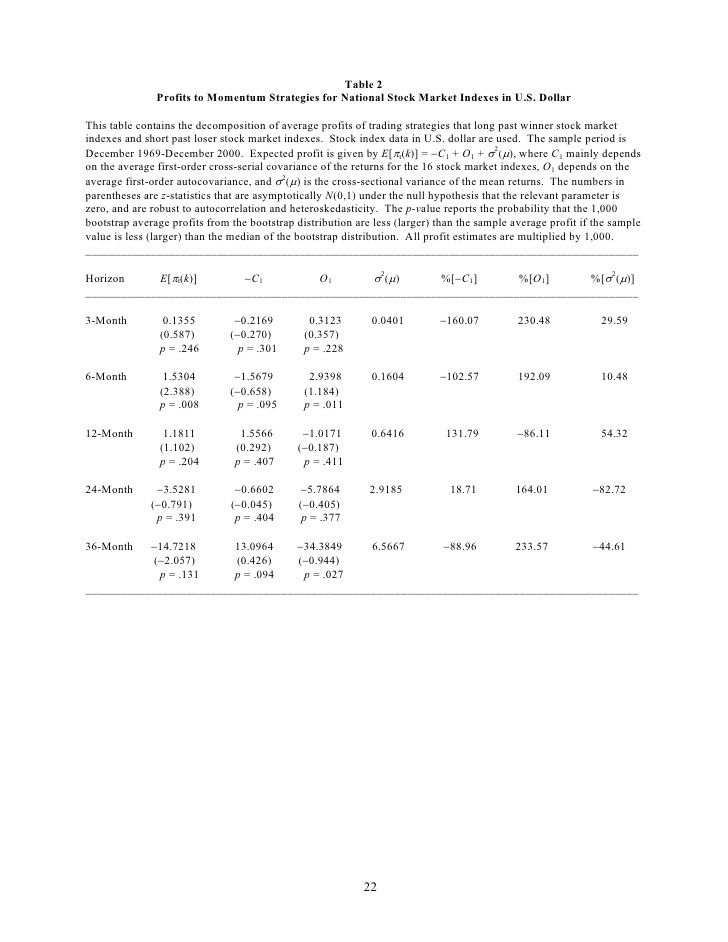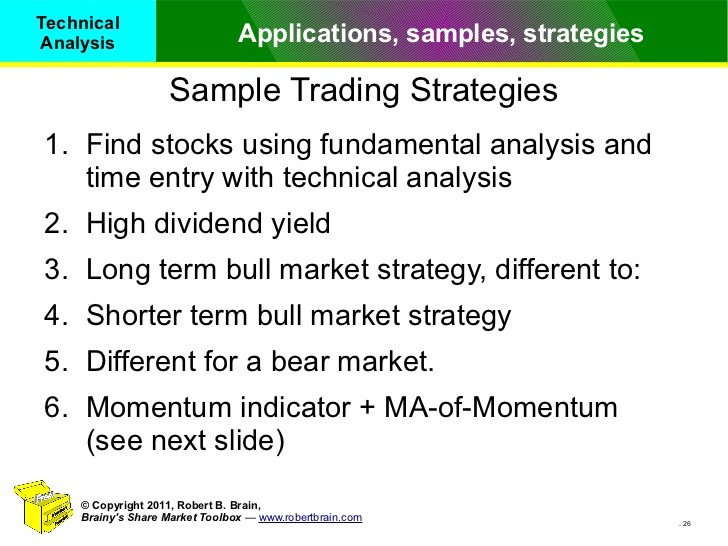Stock Market Strategy Market Timing Based On Long Term Views
Post on: 21 Апрель, 2015 No Comment

by Guest Blogger on February 8, 2010
This highly intriguing guest post is brought to you by Rob Bennett, the author of A Rich Life blog. He recently wrote a Google Knol entitled “Why Buy-and-Hold Investing Can Never Work.”
Image from AussieStockForums.com
I believe that the entire Buy-and-Hold Model for understanding how stock investing works was rooted in a mistake. If you want to know the full story, please read this Google Knol that I recently wrote on this topic. For this blog entry, I want to zero in on the key point, the mistake that caused most of the experts to believe things about investing that I feel are not accurate.
Price matters. This is so with everything that you buy. Cars. Sweaters. Comic Books. Bananas. Everything.
But not with stocks, right? The conventional wisdom is that it is okay to stick with the same stock allocation no matter how high-priced stocks can become. If you determine that a 60% stock allocation is right for you, you can stick with that 60% allocation even when stocks are priced at double fair value. Or even when stocks are priced at triple fair value.
Huh? That’s strange, isn’t it? Shouldn’t we be lowering our stock allocations when stock prices get so high that stocks become an exceedingly dangerous investment class? It sure seems that way to me. I think that a lot of people’s common sense tells them that this is so. But they know that the experts think otherwise so they stick to what the experts say, regardless of how accurate their advice happens to be.
Questioning The Efficient Market Theory
In my opinion, the experts have been getting it wrong because of their belief in something called the Efficient Market Theory (EMT). The EMT says that the market always prices stocks properly, or close to it. So there really never is any significant overvaluation. If overvaluation doesn’t exist, then there’s no need to worry about adjusting your allocation when prices get too high.
How did the experts come to believe this? They noticed that short term market timing does not work. Even the most knowledgeable investors are not able to effectively predict where stock prices will be in a year or two.
Trying to explain this, they guessed that the reason for the lack of success of short term online stock trading is the fact that the market is always setting prices properly. If the price is always correct, the market must know everything that matters. So there is no way to gain an edge by knowing something that the market doesn’t know. So timing the market cannot work.
But there’s another possible explanation. The other possible explanation for why short-term timing (and thereby, trying to guess where prices will be in a year or so) would not work is that prices are not efficient at all. What if in the short term, prices are almost entirely the product of investor emotions? If that’s the case, then short term timing and trading the market would not work because there is no way to outguess an entirely emotional process. All the intelligence in the world gives you no edge in trying to anticipate emotional choices.
Why Doesnt Short Term Trading Work Over Time?
Now here is my analysis of these possibilities: the academic research of recent years shows that valuations affect long-term returns. This would imply that the explanation that the experts settled on is not the right one. If the stock market were efficient, then overvaluation would be a meaningless concept.
So we are left with the second explanation. Short-term timing does not work because stock prices are determined by investor emotions in the short term.
Stock Market Strategy: Market Timing Based On Long Term Views
This leads us to the explanation that long-term timing DOES work. The market MUST set prices properly in the long term. If prices can be wildly wrong in the short term but must be roughly right in the long term, it should be possible to know in advance which way prices are headed (in the long term only, not in the short term) just by knowing the valuation level you are starting from.
Researchers have checked the historical data. This explanation, unlike the EMT-based one, stands up to scrutiny. The same data that taught us that short-term timing never works also teaches us that long-term timing always works. Thus it turns out that just about everything that the experts have told us about investing in the stock market over the past 30 years is wrong. Oh, my.
I believe that long-term timing works. If you change your stock allocation in response to big changes in prices, you can earn dramatically higher returns while taking on dramatically less risk. Do this throughout your investing lifetime and you can retire five years sooner than you previously thought possible.
The old model for understanding how stock investing works is in the process of collapsing. The new model for understanding how stock investing works is in the process of being built. As investors, we live in exciting times!
If you enjoyed this post, you can get free regular updates through our RSS Feed. or you can have our latest posts delivered to your email inbox by supplying your address here. Your address will only be used for this purpose, and you can unsubscribe anytime. Share This: Save to del.icio.us Digg This! Stumble It! Submit to Reddit Email This
Categorized under: Investing
Related Posts:
1 Rob Gagini February 10, 2010 at 7:55 am

This is not intriguing. This is lunacy.
@Rob G.
I realize that Rob Bennett has his share of detractors. But I open my site to discussion and information exchange. Theres room for various view points and I thought to open the floor here to anyone who cares to discuss and debate the subject. Id be interested to see why you dont agree with the views stated here.
Also, there are investors of all sorts, those who believe only in technical analysis vs who thing anything else but day trading is for suckers vs who think that buy and hold is the holy grail. Ive met a lot of people who cant admit that stock picking is inferior to index funds . But Id like to hear the arguments. I assume that youre tired of hearing the same view points over and over again, but there are some of us who arent part of this history and wont mind reading different ideas (given that they are made appropriately) on investing. If I get tired of the alleged trolling done by anyone to anyone else, Ill make sure to mediate the debate accordingly.
This is not “intriguing.” This is “lunacy. ”
I think its worth pointing out here that the title that I used when submitting the Guest Blog Entry was The Greatest Mistake Ever Made in the History of Personal Finance. I believe (and my opinion is based on eight years of experience debating these matters) that the reason why a good number feel a need to be abusive in discussing whether the Buy-and-Hold Model has failed is that it was all a grand mistake and one that has caused great human misery.
It has now become common practice for experts in the investing field to acknowledge that the Efficient Market Theory (the intellectual framework for the Buy-and-Hold Model) has been discredited. But those who acknowledge this often add that they see no need to change the investing advice that they give because no better model for understanding how investing works has come along. The reality is that a new model has come along and that there are thousands of smart investors using it today. They just cannot talk about it! They just cannot share with others who need to know about it what they know!
Why is it considered a terrible crime in some quarters to reveal the truth about stock investing as we know it today? Because acknowledging what we know today works requires acknowledging that the Buy-and-Hold advocates got it all terribly wrong. They didnt intentionally get it all wrong and they did generate many insights that will be helping us all for many years to come. But even acknowledging that they are not perfect beings has been more than many of the big-name Buy-and-Hold advocates have been capable of.
Humans hurt themselves when they make mistakes and cannot acknowledge them. Thats the very human story that we are seeing play out before our eyes as the economic crisis worsens and as see our economic and political systems moving ever closer to the edge of the cliff.
Holy moly!
Rob
Let it be known that I used a different title so that the article can be found more easily via search . No disrespect to Robs original title!
5 Jacob January 8, 2011 at 2:54 pm














